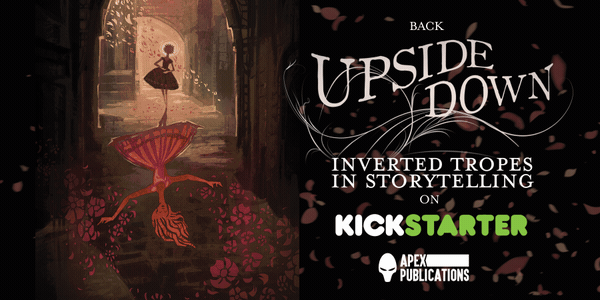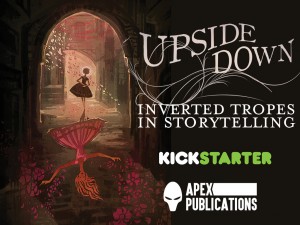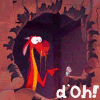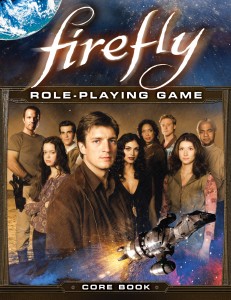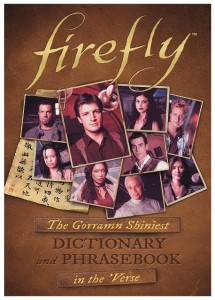
It’s taken me many years to finalize a plan for approaching conventions, and I wanted to put my thoughts into writing today because I feel this (e.g. me getting a touch personal here) might help some of you who are struggling with this as I once have. I’ve opened comments up on this post if you have additional tips to share; hopefully some good discussions can be had. Who knows? Maybe I’ll learn a thing or two from you as well.
Size, People, and Purpose
First and foremost, I want to stress that convention experiences are often shaped by three things: size, the people involved, and its purpose. The smaller the show, the more visible the culture of that convention and its internal politics are. Thus, when something goes wrong all guests and attendees deal with the fallout in some fashion or, alternatively, benefit from all the wheels turning at the right time. The size of a convention ultimately leads to issues when there is a personality conflict or people who act in a manner that is accepted by one group, but condemned by total strangers(2). Now, we all have our personality quirks–myself included–and those tend to stick out in smaller groups. For example, one of my quirks is that I tend to laugh when I’m nervous and, if I’m REALLY uncomfortable, I’ll default to my total smartass state of being either on the inside (brain) or on the outside (foot-in-mouth disease). The more comfortable I am, the quieter I get or, alternatively, the more of my natural weirdness I can unleash upon the unsuspecting masses. Yeah, I know… Eyebrow-raising, eh?(3)
Okay, phew! I’m sure you have your own quirks as well. My point to sharing that bit, is that we all have them. Occasionally, I’ve found this translates into social anxiety with respect to meeting new people and this compounds the more people who have social anxiety at the same damn time. At a smaller show, it might seem like it’s easy to meet people–and it is–but often smaller shows will draw local folks who already know one another. This means that a smaller show can be filled with cliques that either get along great and welcome new people, or don’t get along and form silos. At a larger convention(4), on the other hand, while the general culture might be apparent, the specific personality issues aren’t as visible because you simply have more people.
Before I get to specific tips navigating shows, I want to talk about how important the purpose of a convention is and the demographic. For literary-based conventions, the purpose is generally to discuss books and interact with authors. Sounds simple enough, right? For me, I don’t feel this is specific enough to draw me to a show unless I am going there to build relationships. Make no mistake: small cons, or even con offshoots(5), are fantastic to get to know people provided there’s enough folks there who have the same goal. Not everyone does–especially with respect to writers. Maybe a fan on the concom petitioned to get [Insert Very Famous Author Here] at the show, because a book she wrote changed his life. Maybe a parent has a child who wants to write like said author, or a struggling writer wants to get to know that person for up close and personal advice. I’m oversimplifying here, but my point is that there are many reasons to get to know somebody, and that is as true at conventions as it is in Real LifeTM.
In many cases, my experience has been that the concom is comprised of volunteers who have invited an individual in order to honor their work and spend time with them. This person’s needs tend to eclipse all other guests, in part because there might be money involved or a legal agreement, such as a contract, to ensure they’re well taken care of. After all, someone like GRRM doesn’t need to go to cons, but does as a way of giving back to the community. Now, it can feel as if the A-list guests get a certain treatment and all other guests get the B or C, because that is exactly what’s happening behind-the-scenes. Every convention guest, however, knows that GRRM is a Very Famous AuthorTM and deserves to be a GOH. There is no need for any host to rub that in their guest’s faces by treating them poorly, or by reminding them just how much they don’t matter(6).
Personally, I often have better luck at larger shows for the simple fact there is more to do. I can watch or play a demo, visit Artist’s Alley, explore the dealer hall, listen to a reading, go to a panel or signing, etc. and not be, as my British friends like to say, spoilt for choice. Being on the professional side of the equation, larger shows are also harder to conduct business meetings, because fans have to come first due to the way the schedule is set up. Saturday morning, for example, at any convention is a logistical nightmare for portfolio reviews or business discussions. Sunday afternoon, on the other hand, can be a lot better provided most folks have cleared out by then. Here, too, there might be the sense of A-list, etc. but it’s not as omnipresent in a larger crowd. Still, you can glean a lot of insight from watching creators with large fanbases interact with their fans and other professionals. It greatly helps to be a fly on the wall, if you can, because you can learn a lot about conducting yourself at a convention when you’ve got a public profile. Always, always, always think about what might happen if you were in their shoes, because one day? You just might be.
To Go Or Not To Go
Now that you’ve (hopefully) gotten a sense of how I feel about cons in general, I’m going to talk about some of the questions I ask myself outside of the basics. Some of these questions use the word “research”; sometimes, I will attend a show to check it out before I participate in programming, especially if I’ve heard a lot of things about it.
- Why am I going to this show? Is it to build relationships, see folks I haven’t visited with in a while, maintain business dealings, or use it for research?(7)
- How much will it set me back? If the cost is too high, is there a similar con I can go to for the same reason?
- What does the show’s website look like? Do they have programming listed from last year?
- What are the convention’s policies toward harassment? Disability/access issues? Cosplayers?
- Do I know the guests? Anybody who’s going?
Though this is a fairly short list, my criteria tends to be impacted heavily by the people involved. If I am expected to show up by myself, not knowing a single person, then I typically don’t bother unless I have to go (e.g. major award, publisher’s/agent’s recommendation, etc.). Or, alternatively, if I’m invited to a show I’ve been to and the same people, year after year, are invited with few changes? Then, I might withdraw and/or recommend other guests.
Con Prep
I’m channeling a little bit of my neuroses here, because the last time I told someone all the things I do for con rep, I got the incredulous look. Thankfully, I’m sitting here behind a computer screen ergo… Hrmm… I kind of dig the lists I’ve got started, so let’s go with that! Please note: I’m assuming that if you are a Mature Responsible AdultTM you don’t need things like budgeting/financial advice, so I’m going to skip talking about the monies.
Checklist
These are the things I usually bring with me to a convention.
1. Silver Sharpie–great for signings!
2. Portable USB rechargeable battery
3. Bookplates
4. Business cards: one with personal info for business associates, one generic for fans
5. Small dice games (I dig Rory’s Cubes for storytelling-on-the-fly and Zombie Dice)
6. Extra notebook for note-taking and pens, pens, pens
7. Mini-Larabars for emergency purposes.
Scheduling
1. Programming: In addition to signing up, I also watch the schedule when it goes live for panels I might be interested in.
2. Dealer Hall: I find out what the hours are, and if any publishers/authors have a booth.
3. Meetings: I set up business or personal meetings in advance with a half-hour buffer on either side in case of delays. Mileage varies on when meetings can be scheduled. This greatly depends upon the show, but in general? Don’t wait until the last, possible minute and, for the love of the gods, don’t set up a meeting with someone if you just want to shoot the shit. Every writer, myself included, needs to act out of self-interest at these shows in order to sell books, ink deals, continue getting work. Scheduling a meeting without actually needing to is bad form.
4. Digi-Cal: I then plug programming into my phone, and I do this with impunity planning for: down/travel/sleep/flex/fitness time, meals, everything. Well, maybe not everything…but you get the idea. I strongly recommend planning downtime if you are overwhelmed by The People! to save your sanity.
Though my schedule might not be final at that pre-planning stage, what I have is a working template I can massage as needed. Having a visible schedule also helps me avoid accidentally leaning on a friend or acquaintance too much, which can happen if I’m having a crappy time.
As the convention approaches, I’ll also start outlining what I’m going to say on the panel as I have the tendency to drop F-bombs and get ranty(8) on certain topics which is not fair to my fellow panelists. So, I’ll use an outline technique to frame the points I want to make and, additionally, the questions that I might ask of my fellow panelists should the opportunity arise. If I get the panel list back and I can’t speak on a topic effortlessly, then I will also back out and ask to switch or recommend someone else whom I’ve touched base with ahead of time.
Alcohol and Parties
All right, I’m getting into “How many words did I write on this topic?”-land at this point, so I’d like to end this by talking about alcohol and socializing into the wee hours of the morning. Typically, I don’t drink more than a few cocktails unless I know the people I’m hanging out with well. If I do, I nurse those suckers for as long as possible. Some people go to conventions to party, sure, but that person is not me. I don’t mean that I’m against it, mind you, but I think about it like this: the folks I meet at a con are either people I’ll work with or plan on working with some day. Copious amounts of alcohol plus embarrassing moments tends to fare badly long-term, especially since I often communicate electronically with folks. If I don’t go to shows very often, then I have less chances to make a positive impression–quirks and all. I’d much rather karaoke or do something equally embarrassing all on my own, like play a game of pool, then get drunk in front of total strangers.
Of course, I’m talking about safety protocols. Your mileage will vary on this, but again… This goes back to the reason why you are going to a show. I often connect with my male friends and ask them to be my con husband; this is a person I know well (or trust) who will escort me back to my hotel, who I can signal if I’m feeling uncomfortable in a given situation, etc. My safety concerns might mean I cut my night short, or I stick to one or two parties instead of attending room parties on various floors. If a con husband (or trusted bestie, etc.) doesn’t make sense for you, then it doesn’t. But, at the very minimum, if you are going to any party that involves alcohol (or takes place outside of your hotel) I strongly recommend that you buddy up with a friend ahead of time. Apologies for launching into nagging mode, but I think this (partnering up) is hugely important, and I have many, many reasons/stories/etc. why I’m repeating myself on this.
Phew! I cannot believe how much I wrote on this subject. If you have advice I didn’t cover, or want to ask for clarification, please post. I want to hear your thoughts, and I’m sure my readers will as well.
Footnotes
So many this time they get their own header…
(1) This may or may not be a subtle hint that I’d actually like to write for the comic and/or Frog Thor!
(a) Yes, this is a footnote off of the original and I am shameless. Mea culpa.
(2) I am not referring to harassment here, as I feel that is a separate (but possibly related) issue. Rather, I’m painting the scenario broadly because harassment deserves its own blog post, and the topic has been covered extensively by People Smarter And More Experienced Than Me. Here, what I’m alluding to are the Five Geek Social Fallacies, or problems that might arise due to social awkwardness.
(3) No, no examples. Promised myself that I’d stop over-explaining. Really, the whole fun in getting to know someone is to pick up on this crap yourself.
(4) Say “small” is less than 5,000 people, and “large” tends to be 25K and up.
(5) By offshoots, I mean: programming tracks, workshops, etc. that are included under the primary show’s umbrella, but are run separately.
(6) Reasons why I don’t return to a con are actually very few, outside of the logistics for cost and time involved. Being treated poorly as a guest is a big ‘un, as well as not being able to provide constructive feedback.
(7) I don’t typically go to shows with the sole intent of having fun.
(8) Remember what I said about my quirks, earlier? Underneath this mild-mannered exterior, lies a fiery heart of deep, deep passion. This is one Italian stereotype I can pretty much guarantee, and my personality can sometimes eclipse others who are quieter and more introverted than I am. I try to be aware of the folks involved, because at a con? It’s their con, too. It’s not just about what I’m getting out of it.
Mood: Eyebrow raise.
Caffeinated Beverages Consumed: 5 minus 3
Work-Out Minutes Logged Yesterday: 60
In My Ears: Some Final Fantasy heavy metal nonsense.
Game Last Played: Pandemic (Lost again.)
Book Last Read: Shooooooot… There’s a pile I’m working through…
Movie/TV Show Last Viewed: House
Latest Artistic Project: Pain-in-the-butt ombre earrings.
Latest Fiction/Comic Release: Gods, Memes, and Monsters
Latest Game Release: Dread Names, Red List for Vampire: the Masquerade and Ghosts in the Black for the Firefly RPG.
Current State of Projects: Read my latest project update and My Departure from the Conan RPG.
